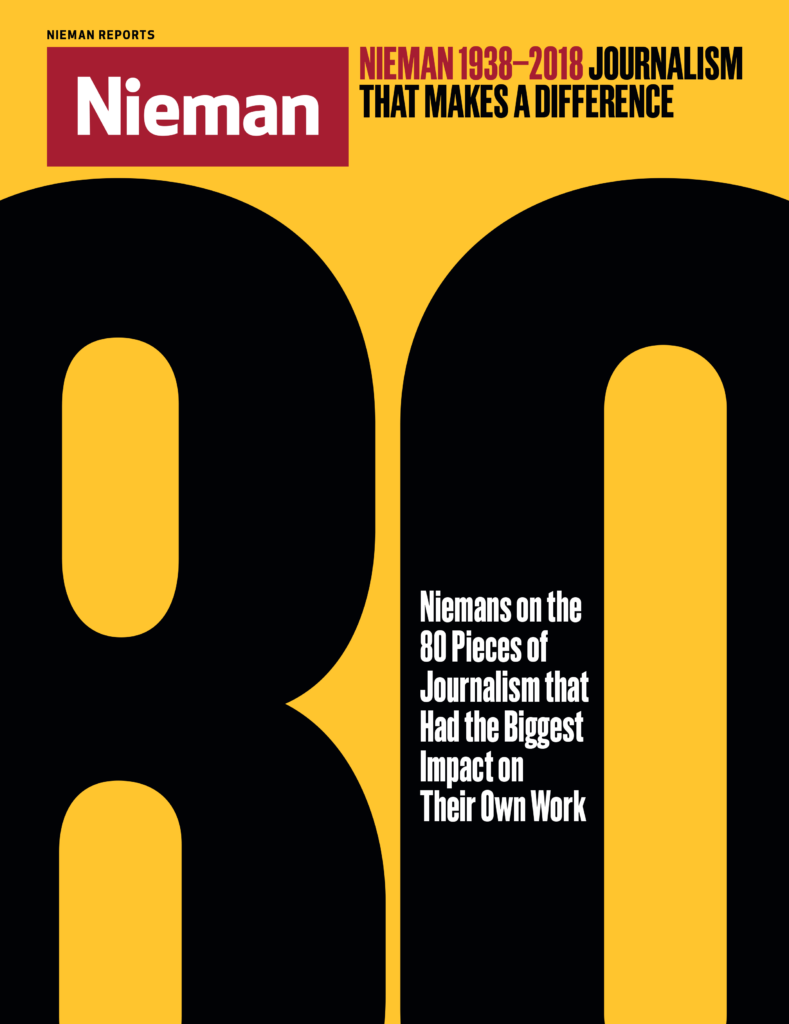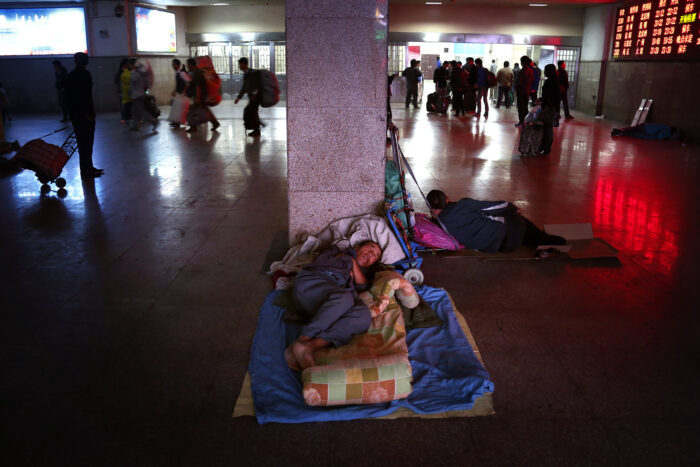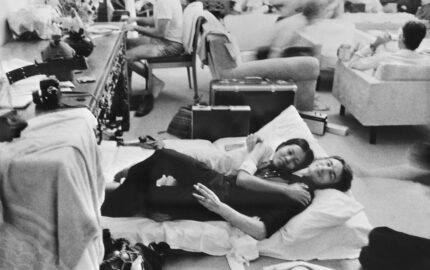
How are great journalists made? Often, it’s pieces of great journalism that help form them, influencing their lives or careers in an indelible way. To celebrate the Nieman Foundation for Journalism’s 80th anniversary in 2018, we asked Nieman Fellows to share works of journalism that in some way left a significant mark on them, their work or their beat, their country, or their culture. The result is what Nieman curator Ann Marie Lipinski calls “an accidental curriculum that has shaped generations of journalists.”
“The Death of Detainee Sun Zhigang” from 2003 was such a tremendous benchmark, shiny and high, for Chinese journalism. The story led to the initiation of a civil movement calling for an end to a controversial law that authorized local policemen to immediately detain and deport anyone who fails to present an ID card, temporary residential permit, or employee card.
A great number of citizen activists, journalists, and scholars joined the effort, their voices converging, angry and loud. The central government was pressed to reform this uncivil law. Yes, progress was made but at a high cost for journalists.
Politicians took revenge, and the leaders of Southern Metropolis Daily were imprisoned for years on trumped-up corruption charges.
The 2003 story makes me so proud to be a journalist and it reminds me of the importance of remaining committed to the pursuit of truth. As censorship and the threat of getting jailed keeps growing, journalists, even those willing to go to jail, are left with little opportunity to publish stories promoting change. So many articles and news posts have been censored and blocked soon after their uploading, leaving the lonely “404” code on a blank web page.
It is a gloomy time of “404.” An increasing number of journalists are leaving reporting while a small group of them is keeping up the struggle. When I think of “The Death of Detainee Sun Zhigang,” I am inspired to keep pushing forward, inch by inch.
The Death of Detainee Sun Zhigang
By Chen Feng and Wang Lei
Southern Metropolis Daily, April 24, 2003
Translated by Mia Li
Excerpt
Sun Zhigang, 27, graduated from college just two years ago.
At 10 o’clock on the evening of March 17, 2003, he left home for an Internet café as he usually did. Over the next three days, he found himself at three places where he had never been: Huangzhoujie police station in the city of Guangzhou, the city’s repatriation transfer station, and the emergency clinic for detainees.
What exactly happened to Sun Zhigang at those three locations over the three days is something that he will never be able to tell us, for he died at the clinic on March 20.
His body, yet to be cremated, still lies in a funeral home.
Sun Zhigang had only arrived in Guangzhou some 20 days ago. After graduating from Wuhan University of Science and Technology in 2001 and working in Shenzhen, he had traveled to Guangzhou to work for a clothing company.
Being new to the city, he didn’t yet have a temporary residence permit. When he left home that night, he didn’t have his ID card on him either.
At about 11 o’clock that night, Mr. Cheng, Sun’s housemate, received a call from Sun, who told Cheng that he was detained at the police station due to not carrying a temporary residence permit.
Sun asked Mr. Cheng to “bring my ID card and cash” to bail him out. Mr. Cheng and another colleague immediately rushed to the police station. It was almost midnight when they arrived.
For reasons still unbeknownst to us today, Mr. Cheng was told by the police that “Sun can’t be released on bail even with ID.” Seeing many detainees being released on bail, Mr. Cheng pleaded with other officers. However, they took a look at Sun, who was still being questioned, and said “not this one” without providing any explanation.



